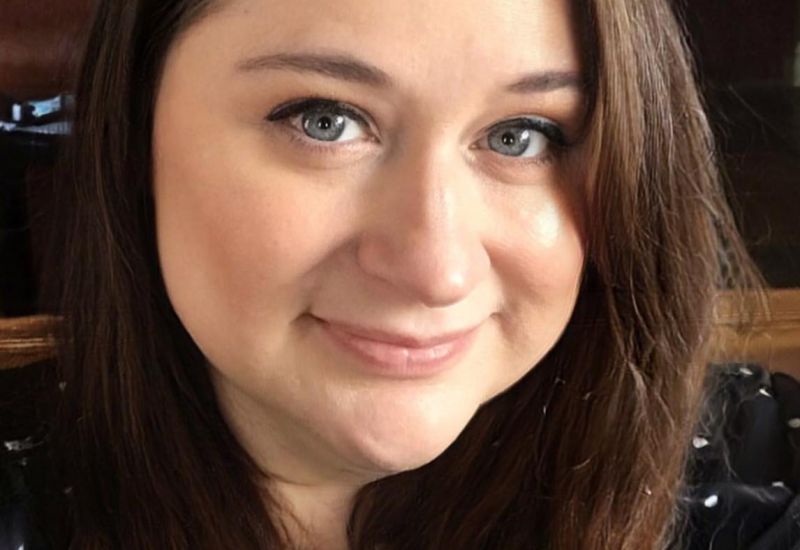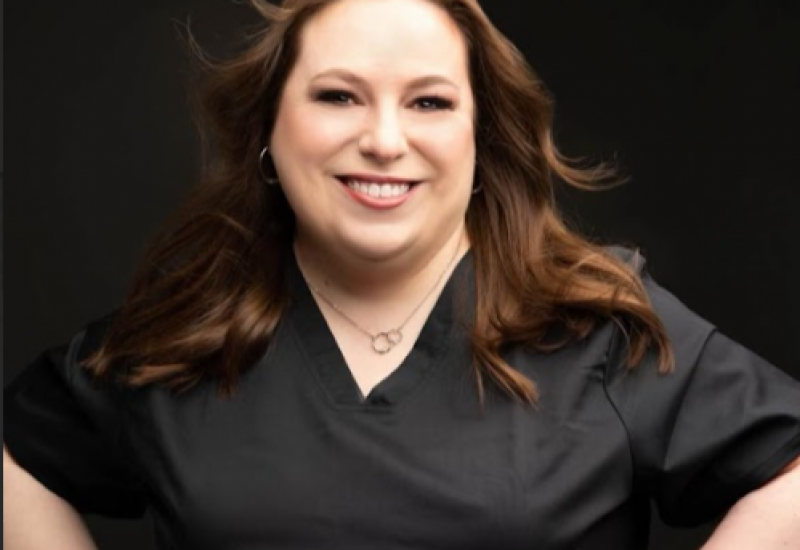Alisa Proctor
In April of 2005, I entered the hospital as an extremely healthy woman in my late thirties, pregnant with my second son. I left the hospital 80 days later–minus my colon–after 21 days on life support, five surgeries, five weeks in the ICU, and one month in the Sub-ICU, all as a result of an antibiotic-related infection of Clostridium difficile.
In that time, I actually had two events of C.diff. I entered the hospital while pregnant because I began bleeding at 31 weeks gestation. My water broke, I was put on complete bed rest in the hospital, and was given protocol antibiotics, Keflex and Erythromycin, to keep the baby from getting an infection. The goal was to keep the baby inside me as long as possible before going through with an emergency C-section. After three days on bed rest, I developed painful diarrhea. I complained to my caretakers, but it took several days before I was finally diagnosed with C. diff. After ten days on a Vancomycin treatment, a stool sample showed that I no longer had C.diff. I remained on bed rest for three weeks until I began bleeding again. I then gave birth to my son Jamie via C-section at 34 weeks gestation. He went to the NICU where doctors discovered that he had a pneumothorax. He was consequently given a chest tube, and was also put on a ventilator for some time. Fortunately, he was able to go home after three weeks in the NICU. I, however, was not: I was still in the ICU fighting for my life.
Although my first event of C.diff was cured within about ten days, the second infection changed my life forever. Two weeks after my first event (and five days after my C-section), I had what I knew was a relapse of C.diff. I was certain because of the distinct smell, and one instance of diarrhea in which I eliminated more watery stool than seemed humanly and healthily possible. It felt as though it was gallons. I thought to myself, “this can’t be good.” Not surprisingly, it wasn’t. I was discharged from the hospital several hours later despite my abnormal vitals. I was tachycardic, and my blood pressure was quite low–and had been for at least eight hours. In hindsight, it’s clear that I was in the first stages of sepsis.
At home, I continued to take the oral Vancomycin. The diarrhea stopped, but I continued to feel worse overnight. The next day I felt truly awful. I knew that I must have been dehydrated, and at some point I was no longer able to urinate, despite having ingested plenty of liquids. I went to the emergency room, and was finally seen after being ignored in the waiting room for 45 minutes. I was admitted by the triage nurse “stat with emergent code blue.” She couldn’t even get a blood pressure reading from me.
Although I didn’t know it until after I “awoke” three weeks later, my second C.diff infection caused pseudomembranous colitis and toxic megacolon. As a result, I developed severe sepsis, abdominal compartment syndrome, and multiple organ system failure including renal failure, respiratory failure, and disseminated intravascular coagulation. I spent three weeks in a drug-induced coma while on a ventilator.
I had four surgeries while I was in the ICU; the first was a removal of my entire colon, in which I was given an ileostomy. The second surgery was to open up my abdomen in an attempt to reduce the pressure on my organs, which were failing due to the effects of severe sepsis and abdominal compartment syndrome. I was given a wound VAC, and fluid was drained from my swollen body over the next two weeks. I had gained about 80 pounds almost overnight from fluid leaking from my blood vessels. For a time, they were draining ten liters of fluid from me each day. I was a very sick puppy.
I received huge amounts of blood and plasma products, and was on more drugs than seemed possible, including Xigris, a drug used only under rare circumstances to help battle severe sepsis. I also continued on Vancomycin, Zosyn, and Flagyl. I had Vancomycin put into my nasogastric tube regularly, as well as daily Vancomycin enemas in my now four inch stump of rectum. In addition to C.diff, I also ended up with MRSA, enterococcus, and acinetobacter infections. Against all expectations, I survived.
The third surgery I had was to remove the wound VAC. However, I was still so swollen from fluid that the surgeon could not pull my abdomen back together. So, a patch of Alloderm was sewn in to cover the gap between my muscles and hold my innards inside. After three weeks on a ventilator, I was extubated and woken from my drug-induced coma. One week later, after I had lost about 45 pounds in fluid weight, I had another surgery to close up my abdominal skin. However, since I was still substantially swollen, the skin was stretched very tightly, and afterwards a bit of the skin tore away around the sutures. This resulted in an open wound about three inches wide and ten inches long that was left to heal from the inside out. In fact, it took over three months for the would to completely heal and fill in.
After I was removed from the ventilator, I had an instance of ICU psychosis, complete with visual and auditory hallucinations. After five weeks in the ICU and about one month in the Sub-ICU, I finally went home. However, I was still very far from well. I could barely walk even a few steps, and had lost most of my muscle mass. My husband described me as “a bag of bones”. It took three months before I could even walk without help or pick up my baby. It took well over a year until I fully recovered. Then, I had to come to grips with a dramatically changed body, and a future with either an ileostomy or future surgeries for a J-pouch reconnection.
Since then, C. diff has become more virulent, and has begun to have dramatic effects on otherwise healthy people. It has caused thousands of deaths through horrible outbreaks in Canada, the UK, and in the eastern portion of the United States. It is mutating and becoming resistant to treatments. A hypervirulent epidemic strain has developed. In fact, specialized genetic tests by the CDC revealed that the strain I had likely was the hypervirulent NAP1/BI/027 strain. This hypervirulent strain produces over twenty times the usual amount of toxins, and can quickly become quite serious and/or lead to death.
After my hospitalization, the CDC contacted me in regard to being a part of a study about severe cases of C. diff in pregnant women. As a result of this study, an article was published in the American Journal of Obstetrics & Gynecology (June 2008). The article focused on pregnant women who have had severe outcomes from C. diff. I am one of the ten cases that were included in the article. Sadly, five of the women had colectomies, and three of the ten women died, along with three babies. At the time of this writing, C. diff is not a reportable communicable disease, and thus, it is difficult to track unless a large outbreak occurs.
Age
39
Gender
Female
Length
Source
Hospital Acquired
Other Stories

Mira

Beth W.

Mollie Lauck

Ken Fredrickson

Jan

Dr. Melissa Geraghty, Psy.D.

Cassie Padilla

Julia

Sue

